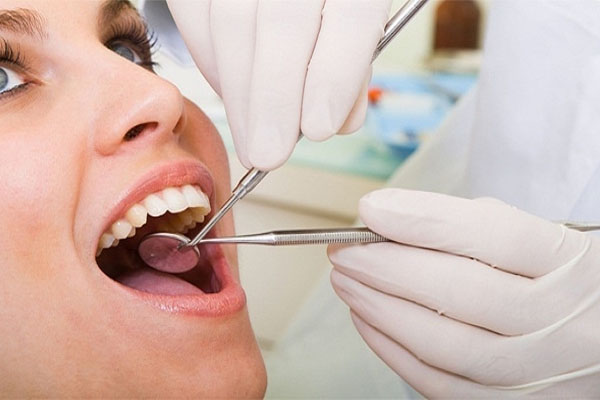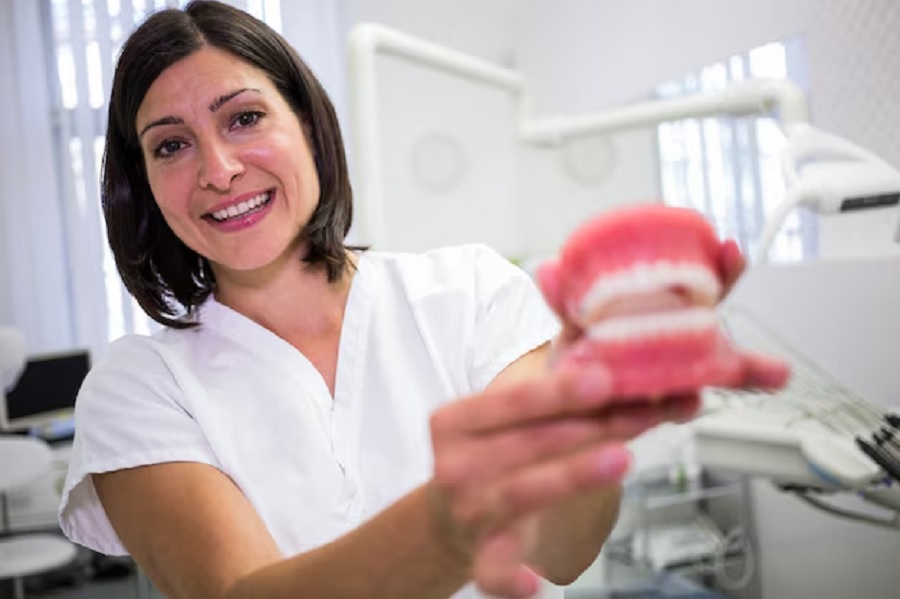Prosthetic dental solutions have revolutionized the field of dentistry, providing patients with options to restore their smiles and improve their oral health. These solutions are essential for individuals who have lost teeth due to injury, decay, or other dental issues. By understanding the various types of dental prostheses available, patients can make informed decisions about their treatment options.
Understanding Dental Prosthetics
Dental prosthetics encompass a range of devices designed to replace missing or damaged teeth. The primary goal of these solutions is to restore function and aesthetics, allowing individuals to eat, speak, and smile confidently. Various types of dental prostheses exist, each tailored to specific needs and conditions. Consulting with a dentist is crucial for determining the most suitable option for each patient. Prosthetic devices can be categorized into two main types: fixed and removable. Fixed prosthetics, such as crowns and bridges, are permanently attached to existing teeth or implants, while removable prosthetics, like dentures, can be taken out for cleaning and maintenance. Understanding the differences between these options is essential for patients considering prosthetic solutions.
Types of Dental Prostheses
Crowns and Bridges
Crowns are dental prosthetics that cover damaged teeth, restoring their shape, size, and strength. They are often used when a tooth is severely decayed or has undergone root canal treatment. Crowns can be made from various materials, including porcelain, metal, or a combination of both, providing durability and a natural appearance. Bridges, on the other hand, are used to replace one or more missing teeth. They consist of two or more crowns on either side of the gap, with a false tooth (pontic) in between. Bridges are anchored to the natural teeth, providing a stable solution for tooth loss. Both crowns and bridges require the expertise of a dentist for proper fitting and placement.
Dental Implants
Dental implants represent one of the most advanced solutions in prosthetic dentistry. An implant is a titanium post surgically placed into the jawbone, serving as a replacement root for a missing tooth. Once the implant integrates with the bone, a crown is attached to it, creating a natural-looking and functional tooth replacement.
Implant-Supported Dentures

For added stability and comfort, implant-supported dentures are an excellent option. These dentures are anchored to dental implants, providing a secure fit that eliminates the discomfort often associated with traditional removable dentures. Implant-supported dentures allow for better chewing efficiency and improved speech, making them a popular choice among patients. Patients interested in implant-supported dentures should discuss their options with a dentist, who can evaluate their oral health and determine the best course of action.
The Importance of Consultation
Before deciding on a prosthetic dental solution, it is essential for patients to consult with a qualified dentist. A thorough examination will help identify the best treatment options based on individual needs, preferences, and overall oral health. The dentist will also explain the benefits and potential drawbacks of each option, ensuring that patients can make informed decisions about their dental care.
Conclusion
Prosthetic dental solutions play a vital role in restoring oral health and enhancing the quality of life for individuals with missing or damaged teeth. From crowns and bridges to dental implants and dentures, various options are available to meet the unique needs of each patient. By consulting with a dentist, individuals can explore the most suitable solutions for their specific situations, ensuring they achieve optimal results in both function and aesthetics. Embracing these advancements in dental prosthetics can lead to improved confidence and a renewed sense of well-being.
 Car Service Rockingham: Comprehensive Solutions for Your Vehicle’s Needs
Car Service Rockingham: Comprehensive Solutions for Your Vehicle’s Needs  Kindness and Quiet Help Everyone Enjoy the Office Entertainment Site Together
Kindness and Quiet Help Everyone Enjoy the Office Entertainment Site Together  Machine Learning with Excel: A Beginner’s Guide
Machine Learning with Excel: A Beginner’s Guide  Transforming Singapore’s Transport System The Ultimate Convenience of Promenade Peak
Transforming Singapore’s Transport System The Ultimate Convenience of Promenade Peak  Using CAGR Calculator for Business Revenue Forecasts
Using CAGR Calculator for Business Revenue Forecasts  Chencharu Close Condo Mix Development The Ultimate Address for Modern City Living with Exceptional Transport Links and Future-Ready Amenities
Chencharu Close Condo Mix Development The Ultimate Address for Modern City Living with Exceptional Transport Links and Future-Ready Amenities  How to Prevent Aches and Pains from Everyday Activities
How to Prevent Aches and Pains from Everyday Activities  Expanding Horizons Enrichment Centers and Special Education Institutions Near The Sen Condo
Expanding Horizons Enrichment Centers and Special Education Institutions Near The Sen Condo  How Commercial Cleaning Enhances the Environment in Toledo’s Dental Labs
How Commercial Cleaning Enhances the Environment in Toledo’s Dental Labs 




